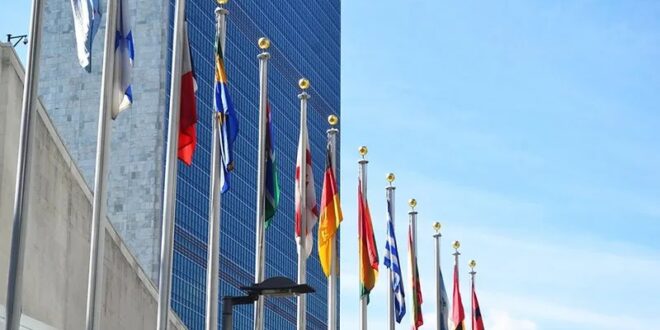In recent years, the international stage has witnessed a noticeable surge in unilateral actions taken by some of the world’s most powerful nations. Simultaneously, concerns have grown over the diminishing effectiveness of the United Nations (UN) in resolving and managing conflicts across the globe. This article discusses the complex interplay between the rise in unilateralism and the declining ability of the UN to address conflicts effectively. It explores the implications of unilateral actions on the UN’s peacekeeping efforts, highlights instances where the UN has fallen short, and suggests ways to strengthen the organization for a more peaceful world.
Unilateralism, in the context of global politics, refers to the practice of individual nations taking independent actions without the consent or cooperation of other states or international organizations. This approach often involves pursuing national interests and security without adhering to multilateral agreements or seeking diplomatic consensus. Some of the world’s major powers have increasingly employed unilateral actions in recent years, which has significant consequences for international relations.
Examples of unilateral actions by major global powers include military interventions in sovereign nations, trade sanctions, withdrawal from international agreements, and the imposition of tariffs. For instance, the United States’ withdrawal from the Paris Agreement on climate change in 2017 and the Joint Comprehensive Plan of Action (Iran Nuclear Deal) in 2018 exemplify unilateral decisions that have global ramifications.
The Impact of Unilateralism
Unilateral actions by powerful countries can have far-reaching consequences for global stability and cooperation. These actions can undermine diplomatic efforts, erode international norms, and create mistrust among nations. The following are some key impacts of unilateralism:
Undermining Multilateralism: Unilateral actions challenge the principle of multilateralism, which is the foundation of the UN system. Multilateral cooperation is essential for addressing complex global issues, including conflict resolution, climate change, and public health crises. The rise of unilateralism weakens international institutions’ ability to coordinate collective responses.
Erosion of International Agreements: The disregard for international agreements and treaties erodes the credibility of global commitments. When major powers unilaterally withdraw from agreements, it sets a precedent that encourages others to follow suit, leading to instability and uncertainty.
Diminished Diplomatic Channels: Unilateralism often sidelines diplomatic efforts in favor of military or economic coercion. Diplomacy and dialogue, which are essential tools for conflict resolution, suffer as a result.
Weakened Norms and Rules: Unilateral actions can weaken established norms and rules of international conduct. This can lead to a more chaotic global environment, where countries are more likely to act in their narrow self-interest rather than considering the broader implications.
The Role of the United Nations in Conflict Resolution
The United Nations, founded in the aftermath of World War II, was established with the primary objective of maintaining international peace and security. The UN’s Charter outlines principles and mechanisms for addressing conflicts and preventing wars. These mechanisms include diplomacy, peacekeeping missions, and the use of economic sanctions when necessary.
Over the years, the UN has played a pivotal role in mediating conflicts, peacekeeping operations, humanitarian assistance, and post-conflict reconstruction. The organization’s efforts have been instrumental in preventing and resolving numerous conflicts worldwide. However, the UN’s effectiveness in this regard has faced growing challenges.
Challenges to UN Effectiveness
Several factors have contributed to the declining effectiveness of the UN in conflict resolution:
Polarization among Major Powers: The rivalry and polarization among major powers have hindered the UN Security Council’s ability to reach consensus on critical issues. Veto-wielding members often prioritize their national interests over collective security.
Complex Conflicts: Modern conflicts are often characterized by their complexity, involving multiple non-state actors, transnational terrorism, and civil wars. These complexities make conflict resolution more challenging.
Resource Constraints: The UN’s peacekeeping missions often lack the necessary resources, including funding, personnel, and equipment, to effectively address conflicts.
Failure to Adapt: Critics argue that the UN has failed to adapt to the changing nature of conflicts and international power dynamics.
Conclusion
The rise in unilateralism poses significant challenges to the United Nations’ effectiveness in conflict resolution and international diplomacy. Unilateral actions by major global powers can undermine collective efforts to maintain peace and security. To address these challenges, a renewed commitment to multilateralism, diplomacy, and UN reforms is essential. The world’s major powers must recognize the importance of working together within the framework of the UN to address global conflicts and challenges effectively. Only through collective action can we hope to build a more peaceful and secure world.
 Eurasia Press & News
Eurasia Press & News




